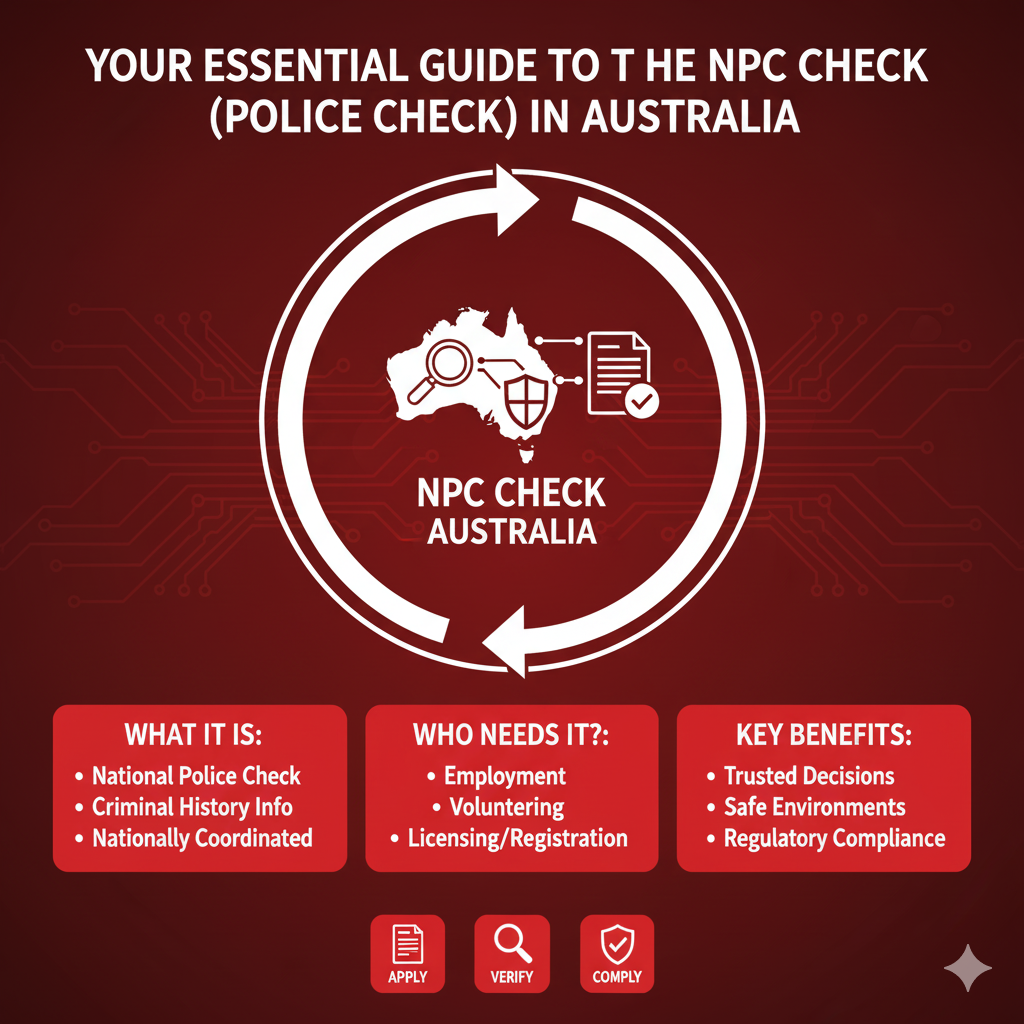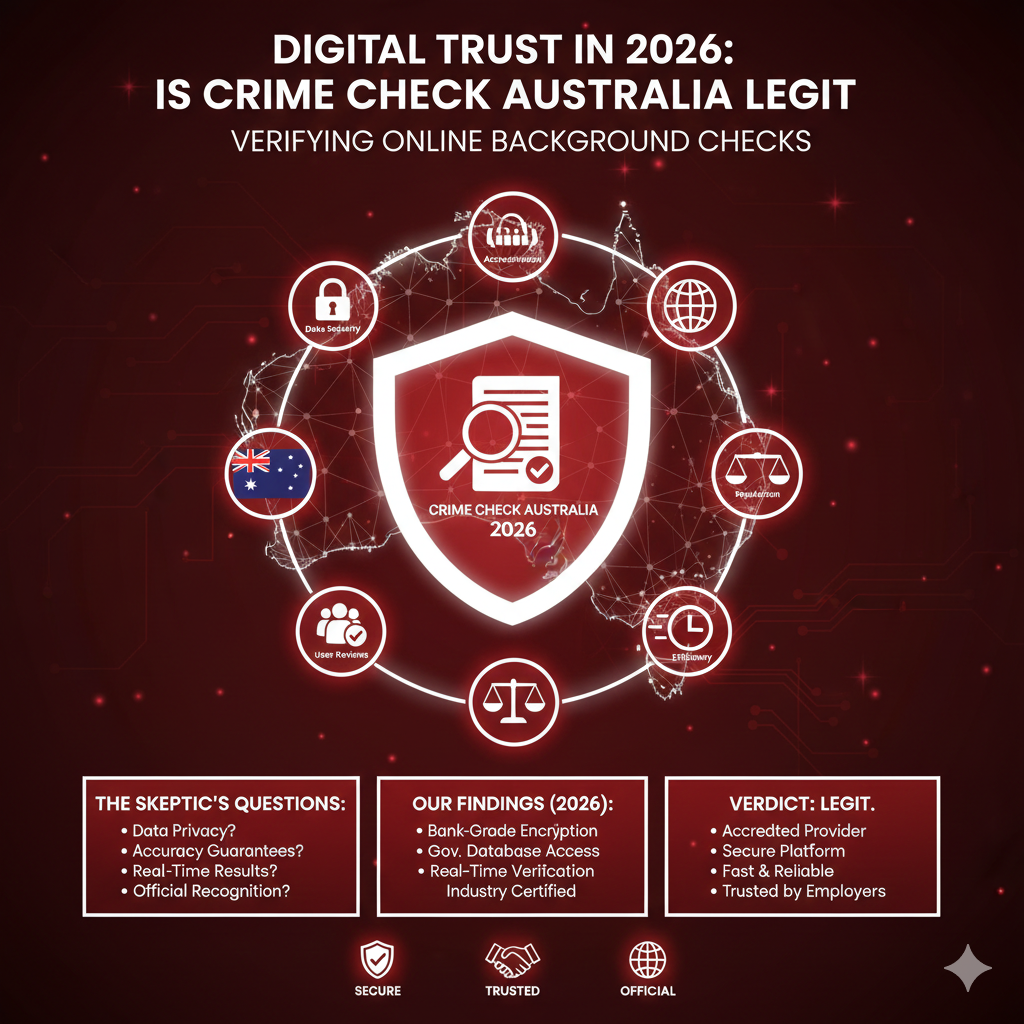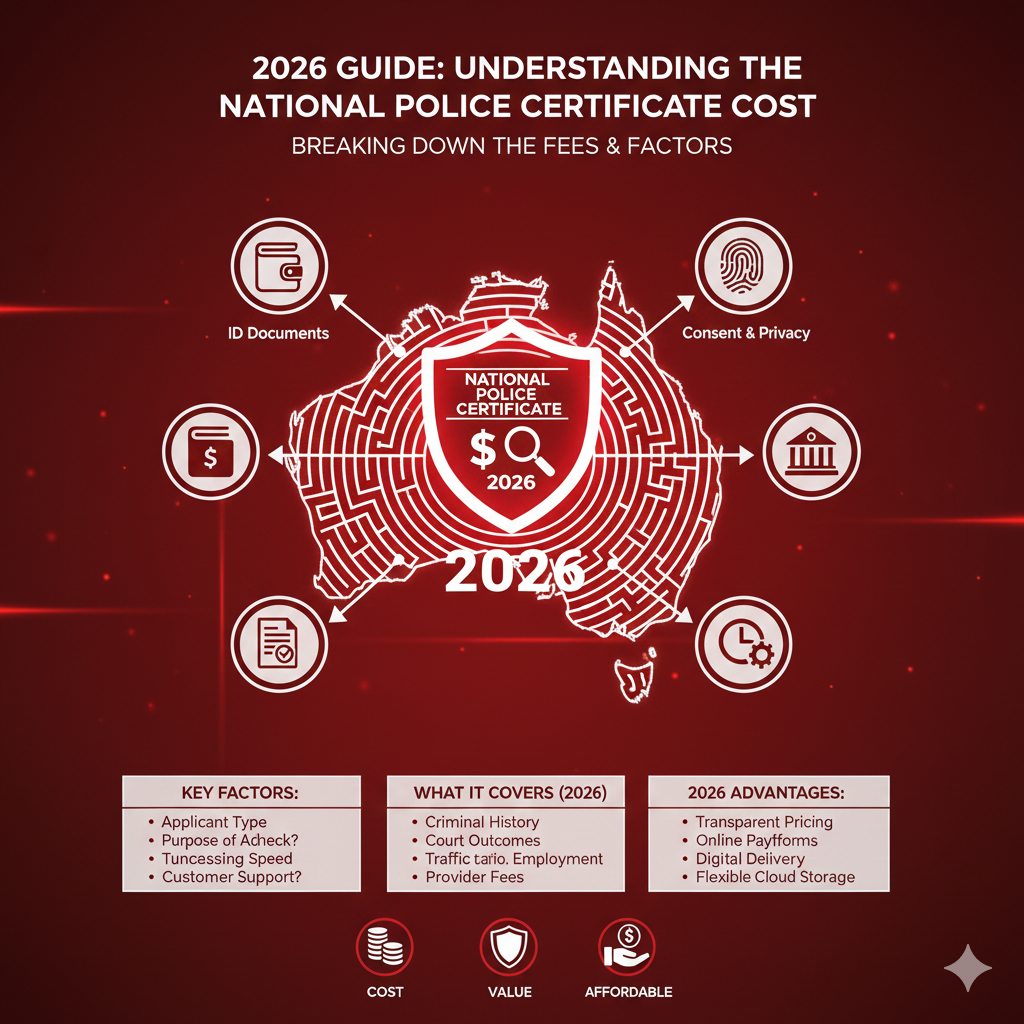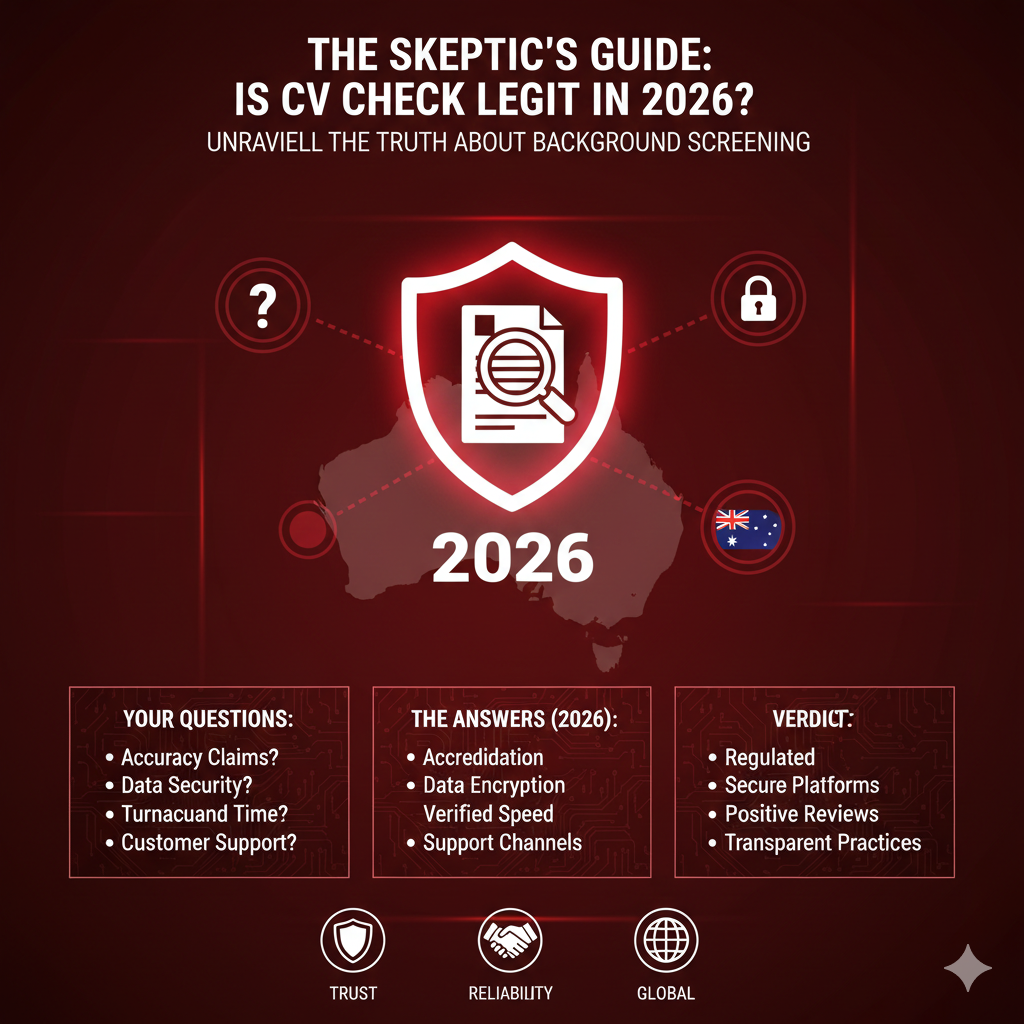When applying for a job, volunteering, or seeking professional accreditation in Australia, you’ll inevitably be asked for a National Police Certificate (NPC). This document is the cornerstone of background screening and is critical for assessing a person’s suitability for a position of trust.
While the terms NPC check and police check are commonly used, the official name for this document, as issued by ACIC-accredited bodies like Rapid Screening, is the Nationally Coordinated Criminal History Check (NCCHC). Rest assured, they refer to the same essential background check.
At Rapid Screening, we simplify this crucial process. Thanks to our direct digital link with the national system, we offer industry-leading speed: 70% of all NPC check results are returned within just 2-4 hours of application. This guide provides a clear breakdown of the check, what it reveals, and how you can get yours fast.
Defining the NPC Check and the NCCHC
The NPC check is a national-level search of an individual’s criminal history across all Australian police jurisdictions.
What Information Does the NPC Check Provide?
The resulting certificate provides a factual summary of a person’s disclosable criminal and police history. It contains one of two outcomes:
- No Disclosable Court Outcomes (NDCO): This is the result most employers seek. It means either no police information was found, or existing information cannot be disclosed due to relevant legislation (like Spent Convictions laws).
- Disclosable Court Outcomes (DCO): This lists specific court outcomes, including convictions, findings of guilt, and serious pending charges.
The Crucial Difference
There is effectively no difference between the NPC (National Police Certificate) and the NCCHC (Nationally Coordinated Criminal History Check) for general employment, volunteering, and licensing purposes.
- NPC: Often the term used when applying directly through state police agencies (e.g., WA Police, Queensland Police).
- NCCHC: The official terminology adopted by the Australian Criminal Intelligence Commission (ACIC) for checks issued by accredited, non-police third-party providers like Rapid Screening.
Regardless of the name, the process, the database searched, and the rules governing disclosure are the same national standards.
NPC Check Processing: Speed and Delays
The processing time is the biggest variable when getting an NPC check. While traditional paper applications can take weeks, the digital method offers rapid results for the majority of applicants.
The Rapid Screening Speed Advantage
Our secure, online platform is designed for maximum efficiency in processing in SA, VIC and others as well.
| Application Outcome | Processing Time | Outcome Percentage |
| Automated Clearance | 70% of results within 2-4 hours | ~70% |
| Manual Police Referral | 1 to 15+ Business Days | ~30% |
The 70% returned within hours benefit from an instant system clearance. The system confirms your details do not match any records requiring further investigation, and the certificate is immediately issued electronically.
Why the Remaining 30% Takes Longer
Approximately 30% of all applications are automatically referred to one or more police agencies for a manual review. This is the sole reason for delays and is unavoidable by any provider.
- Common Name Match: The applicant’s name and details match a name common to an individual with a disclosable record, requiring a police officer to manually verify the identity.
- Existing Records: If the search finds an existing criminal history, the system automatically flags the check for manual vetting so police can apply the correct Spent Convictions laws and disclosure policies.
- Interstate History: Having lived in multiple States or Territories requires co-ordination between different police agencies, which adds time.
How to Get Your NPC Check Fast and Compliantly
Choosing the right provider is the first and most critical step in ensuring a rapid result.
The Three Steps to a Fast NPC Check
- Apply Online with an ACIC-Accredited Body: Use a provider like Rapid Screening. Our direct electronic link to the ACIC system bypasses the slow manual handling, ensuring your application enters the national queue instantly.
- Verify ID Digitally (DVS): Complete the 100-point identity check entirely online using the Document Verification Service (DVS). This instantly verifies your identity documents (like your Australian Driver’s Licence or Passport), eliminating the need for post office visits.
- Ensure Total Accuracy: Double-check every detail, names (current and former), date of birth, and addresses to ensure they precisely match your official identity documents. Errors or inconsistencies are a primary cause of manual referral and delay.
Disclosure and Spent Convictions
The certificate only discloses information relevant to the stated purpose of the check. For instance, Spent Convictions, older, minor offences that are legally non-disclosable, will not appear on your final result, thanks to legislation like the Spent Convictions Act 1988 (WA). The police apply this legal safeguard during the vetting process to ensure fairness and promote rehabilitation.
Conclusion
The NPC check is a mandatory part of life in Australia, but it doesn’t have to be a source of stress or delay. By understanding that the official NCCHC is the same check, and by choosing a fast, ACIC-accredited provider, you can significantly reduce your waiting time.
Rapid Screening guarantees a secure, compliant, and lightning-fast process, with 70% of results returned within 2-4 hours. Trust us to provide the timely and reliable check you need to move forward with your career or volunteer role.
Frequently Asked Questions (FAQs)
Q1: Is the NPC check issued by Rapid Screening accepted everywhere in Australia?
A: Yes. The Australian Criminal Intelligence Commission (ACIC) issues the certificate as an official Nationally Coordinated Criminal History Check (NCCHC). It is valid and accepted by all employers, licensing bodies, and organisations across all States and Territories in Australia.
Q2: What is a Spent Conviction and will it appear on my NPC check?
A: A Spent Conviction refers to a minor or older offence that the law prevents from being disclosed on a general NPC check after a specified crime-free period. During the check process, police automatically apply the relevant State and Commonwealth Spent Convictions legislation, ensuring they do not disclose old or minor records unnecessarily.
Q3: How long is the NPC check valid for?
A: The NPC check is a “point-in-time” document, valid only on the date of issue. While there is no expiry date, most Australian employers and organisations will typically require a new certificate issued within the last 3 to 12 months as part of their risk management policy.
Q4: If I have lived overseas, does the NPC check cover that history?
A: No. The NPC check only covers criminal history within Australia. If your employer requires an overseas criminal history check, you will need to obtain a separate International Criminal History Check (ICHC).




